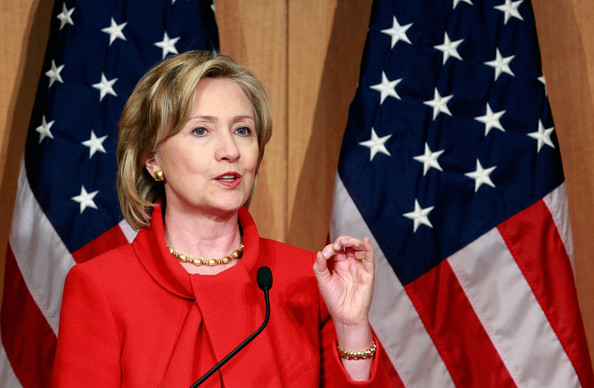NDM Story Index
Monday 31 October 2016
NDM Story Index-
The decline in newspapers: MM case studies
The New Day
1) What was the New Day
trying to achieve?
The new day article was introduced in order to aid the
decline of print media such as newspaper due to the raise of new and digital
media. It was also designed to target a new audience.
2) List the key
statistics on the first page: how many people buy newspapers in the UK? How has
this declined in the last year?
- · 6million people buy a newspaper everyday
- · Over a million people have stopped buying newspapers in the last two years
3) What audience was
the New Day trying to attract?
The newspaper was introduced to target and attract both male
and females from ages 35-55.
4) Why do you think
the New Day failed so spectacularly? There are several possible reasons listed
in the article but do develop your own opinion here as well.
There are many reasons why I believe that the new day
newspaper has been a complete disaster as first of all the pricing of the paper
increased to 50p. Print media is in terminal decline meaning it will eventually
die out this is the case as people are now keeping tabs on the via social media
and other online sites on their latest technology. The fact that they will be receiving
their news for free is a bonus for audience as it is less of an inconvenience for
them to pay for their news when they can get it for free.
The Guardian
1) List the key
statistics on page 10: How many unique digital browsers used the Guardian
website in June 2016? What are The Guardian's latest print sales figures? How
does this compare to the Telegraph? In terms of finances, how much did the
Guardian lose in 2015?
- · The Guardian online is the third most read paper on the internet,
- · 2015 the Guardian lost £70 million this led to cutbacks of 20%
- · The sales of newspapers have been in steady decline since the explosive growth of the internet in the 1990s
2) What has been The
Guardian's strategy for reversing this decline?
The guardian newspapers have the strategy of reversing the
decline of print by ensuring their target audience invest into their business. This
is the case as there hasn’t been any setback in other countries which drives
them to carry on.
3) What global event
did The Guardian's digital coverage win awards for?
4) In your opinion,
will the global website strategy be enough to save The Guardian?
I
think that it does because print news is only released once a day and with it
being accessible online it makes it easier for people to gain access to it and
t
Week 7: Story 14- 'Social media can be a pretty ugly place if you're a woman in politics'
Social media can be a pretty ugly place if you're a woman in politics
https://www.theguardian.com/public-leaders-network/2016/oct/21/female-politicians-social-media-abuse-european-parliament
Social media can be a place for politicians to express their opinions however its also a place where they can receive backlash due to social medias interactivity.
- New report about social media, based on a survey of more than 900 female parliamentarians from 107 different countries. All the MEPs agreed: social media can be an pretty ugly place if you’re a woman in politics.
- 22.8% of national members of parliament are women, and there are still 38 countries in which more than 90% of MPs are men.
- “I do think there’s a psychology about this that we’re not trained in but I’m learning by accident,” she says.
I believe that it showcases how powerful social media is as its one of the biggest hosts for people to share there thoughts and opinion. This is evident in sites such as Facebook and Twitter where people can voice their opinion can also be countered with harmful and hateful comments.
Week 7: Story 13 - Stephen Hawking says artificial intelligence could be humanity's greatest disaster
Stephen Hawking says artificial intelligence could be humanity's greatest disaster
http://www.telegraph.co.uk/technology/2016/10/19/stephen-hawking-says-artificial-intelligence-could-be-humanitys/
Stephen Hawking has suggested that artificial intelligence would be the end of civilisation,
- “It will bring great disruption to our economy, and in the future AI could develop a will of its own that is in conflict with ours,” he said.
- Professor Hawking, a prominent critic of making unchecked advances in AI, said that the technology promised to bring great benefits, such as eradicating disease and poverty, but “will also bring dangers, like powerful autonomous weapons or new ways for the few to oppress the many”.
I believe that Stephen Hawking is overrating a bit as i think that we should have artificial intelligence but they should be restricted to a specific amount and the roles that they have in society because it can cause people to lose their jobs.
Week 6: Story 12 - Elon Musk says fully self-driving Tesla cars already being built
Elon Musk says fully self-driving Tesla cars already being built
https://www.theguardian.com/technology/2016/oct/20/elon-musk-says-fully-self-driving-tesla-cars-already-being-built
Tesla has started to advance in their technology and our usual view on cars which is fully self-driving Tesla cars.
- The death in May of a Tesla driver using the company’s existing Autopilot system prompted an investigation by safety regulators.
- Rival automakers have said they expect to be able to field autonomous driving capability by 2019 or 2021.
- Musk said the software was being built in-house and would run on an Nvidia Titan chip.
I believe that by Tesla investing on these new innovation will attract a mass audience due to the fact that it will be convenient for them as they wouldn't have to drive themselves. However, i feel like the technology is risky as people could hack into the software which is harmful for everyone driving or even those who are walking as the car could be controlled by a hacker just to cause harm to people.
Week 6: Story 11 - 'Facebook bans 'offensive' Swedish breast cancer awareness video'
'Facebook bans 'offensive' Swedish breast cancer awareness video'
https://www.theguardian.com/technology/2016/oct/20/facebook-bans-swedish-breast-cancer-awareness-video-for-being-offensive
Facebook have been slated by The Guardian for banning a video that focused on breast cancer awareness
- Cancerfonden said, “We find it incomprehensible and strange how one can perceive medical information as offensive"
- Facebook took down the video believing that the video portrays images and themes that would be uncomfortable for a facebook audience
This story showcases social networks such as Facebook utilise censorship in the wrong way. The breast cancer awareness charity is sending out useful information to women regarding this illness. however some of the images where seen to be 'incomprehensible and strange how one can perceive medical information as offensive" by Facebook
Monday 17 October 2016
Newspapers: the effect of online technology
Newspapers: the effect of online technology
Do you agree with James Murdoch that the BBC should not be allowed to provide free news online? Why?
1) I personally believe that BBC should not provide free news. This is the case as it would mean that the journalist would perhaps lose their jobs due to the fact that people are taking news into their own hands from example the increase of citizen digital. This could then mean that the accuracy of news will be in question.
Was Rupert Murdoch right to put his news content (The Times, The Sunday Times) behind a paywall?
2) I believe that Murdoch made the right decision to introduce a paywall. I believe that by this method being utilise it could save journalists jobs. This is the case as they have a more significant role in their occupation. If there wasn't any journalists we as media consumers wouldn't have access to relevant news stories.
Choose two comments from below the Times paywall article - one that argues in favour of the paywall and one that argues against. Copy a quote from each and explain which YOU agree with and why.
2) I believe that Murdoch made the right decision to introduce a paywall. I believe that by this method being utilise it could save journalists jobs. This is the case as they have a more significant role in their occupation. If there wasn't any journalists we as media consumers wouldn't have access to relevant news stories.
Choose two comments from below the Times paywall article - one that argues in favour of the paywall and one that argues against. Copy a quote from each and explain which YOU agree with and why.
3) "It is so ridiculous if these mainstream newspapers believe that they can "force readership of fee-based news. One can get the same "news" for free almost anywhere on the internet."
I personally disagree with this because I think that news can be obtained from easier sources for free but the quality of the news may not be the same which we receive from journalists and the accuracy may not be as high either which means the audience receives news which isn't accurate or of low quality.
"It strikes me that the difference in business models has a profound effect on the content type. "
I can agree with this comment as there are different target audiences and those who are younger are more likely to get their news from an online source whereas those who are older are more likely to get it from a print format.
I personally disagree with this because I think that news can be obtained from easier sources for free but the quality of the news may not be the same which we receive from journalists and the accuracy may not be as high either which means the audience receives news which isn't accurate or of low quality.
"It strikes me that the difference in business models has a profound effect on the content type. "
I can agree with this comment as there are different target audiences and those who are younger are more likely to get their news from an online source whereas those who are older are more likely to get it from a print format.
Why do you think the Evening Standard has bucked the trend and increased circulation and profit in the last two years?
4) I believe that the evening standard has bucked this particular trend as due to the raise of new and digital media people are most likely to consume their media online. On the other hand the Evening Standard do indeed have loyal customers who read their news everyday and would pay to consume the media as in their eyes it is a reliable source.
Is there any hope for the newspaper industry or will it eventually die out? Provide a detailed response to this question explaining and justifying your opinion.
5) I believe that the news industry is in terminal decline and will eventually die out due to the vast raise of new and digital media. This is the case as the internet is constantly innovating itself meaning the users will be receiving and have access to new media. The paywall does showcase a new strategy making money out of the newspaper industry.
5) I believe that the news industry is in terminal decline and will eventually die out due to the vast raise of new and digital media. This is the case as the internet is constantly innovating itself meaning the users will be receiving and have access to new media. The paywall does showcase a new strategy making money out of the newspaper industry.
Tuesday 11 October 2016
Week 4:Story 10 - 'Digital crisis looms as 'ruthless' fourth industrial revolution breeds startup fear'

'Digital crisis looms as 'ruthless' fourth industrial revolution breeds startup fear'
http://www.cbronline.com/4th-revolution/digital-crisis-fourth-industrial-revolution-startup-fear/
2/3 of UK businesses feel threatened by digital startups - they think that new startups pose significant threat to their organisation according to Dell Technologies
- 32% of UK businesses fear they may become obsolete in the next 3 to 5 years due to new digital born startups
- 41% of business leaders have faced disruption with digital technologies and the Internet of Everything having a significant change
- 38% of businesses do not know what their business will be looking like in 3 years time
This article shows the problems that businesses are facing due to this idea of digital startups as pretty much anyone with an idea is able to create a business online and try to find an investor. The disadvantage of this is of course that institutions will not be making as much money as better companies will take over, however I do not think this is necessarily a problem as it enables competition between institutions, therefore would allow companies to change and better their strategies to create a better business.
Monday 10 October 2016
Build The Wall Analysis
Section 1:
Audiences need to expect to pay a fee for online news eventually so news institutions are able to benefit (make profits)
Section 2:
The implementation of subscriptions to gain access to news stories online will be difficult due to the way institutions abused its use by giving people information for free
Section 3:
Emergence of the internet; deterioration of newspapers
Section 4:
Three possible ways of news institutions could build a paywall to help revive the industry
Overall
David Simon's argument is about the impact new and digital media has influenced audience's perspective of traditional methods of obtaining news. The main method would be the newspaper which is decline and has been for years now because people are using more convenient ways of getting news which can be from television, radio or the internet. It is obvious that the internet is a dominant force overall in society and it the news industry specifically because its free and can be accessed whenever, wherever. This is why people have become so reliant on it. Therefore, David Simon proposes news institutions should begin to charge people for using the news with a paywall. So this could be a subscription fee which lasts every month or year which would allow the business to receive profits but most importantly would make audiences revisit the website/app because they probably would only sign up with a maximum of two or three news institutions. He says The Baltimore Sun believed young readers would use the free site to find news they are interested in and buy a newspaper and settle down. However, this seriously backfired as these young people were content with reading news online and not revisiting a newspaper for a full story. This is just an example of where the downfall began for the newspaper industry as more and more people were finding the substitute for them.
In my opinion the only way for newspapers to have any recognition would be for institutions to charge audiences a fee for using online content. This means that journalists would only publish news stories online instead of on paper which is ideal at this time as everything evolves around the internet. Therefore, it would still be convenient for audiences to access news as its on their device and institutions would now be able to make profits from the implementation of the pay wall.
The future of newspapers
The article discusses how newspapers are becoming a less favourable source of getting the news and how the internet has taken over. This is a major problem for journalist as they lose their jobs and the nations all over the World won't get good quality stories like the article that brought down President Nixon to defeat corruption on some level. Also, young people aren't really paying much attention to newspapers with people from 15 to 24 are spending 30% less time reading the newspaper once they started using the web.
1. I do believe it is a 'cause for concern' because institutions aren't able to make profits through publishing news online leading to journalists getting less pay. This is because of the fact that news online is free and barely any of the news websites have a paywall. Therefore, the quality of news would reduce because journalist wouldn't be pleased with low pay or low skilled journalists being recruited to lower costs. However, we shouldn't panic as we may be able to receive news stories that are true and fully explained. For example, technology has given people the power to record any criminal behaviour so this can be sent to news institutions who have publish it online for everyone to see in any country.
2. Most of the predictions are true and it may not have been too difficult to come up with those assumptions. From the Ofcom research it is evident that young people are becoming reliant on the internet to get news and rarely/don't use newspaper (59% internet vs 21% newspaper). This just shows the significance the internet has on most audiences as it was a tradition to read newspapers with breakfast in the morning and now the internet has stopped that.
3. Journalism is at risk for sure. The fact that the internet is now where news is being read, profits aren't being made. This is because its free so the employees working on these stories won't get that much pay because the business is receiving low inflows. The Scott Trust Limited funds The Guardian.
Tuesday 4 October 2016
Week 3: Story 8 - 'British men describe how they 'trolled the world' with fake story claiming they accidentally caught boat to Syria'

British men describe how they 'trolled the world' with fake story claiming they accidentally caught boat to Syria
http://www.independent.co.uk/news/uk/home-news/british-men-trolled-the-world-with-fake-story-caught-boat-to-syria-from-ayia-napa-after-night-out-a7071176.html
Three British men posted a picture on Facebook with a fake news story about how they ended up in Syria
- The men also posted snapchats and sent them to journalists as 'proof'
- They said "we have literally trolled the world media and we are so proud of ourselves"
- "They report bollocks all the time and people never check the facts. As soon as they posted it that was it - it went viral"
Monday 3 October 2016
Week 3 :Story 7- 'Met investigates filmed confrontation between driver and police officer'

Met investigates filmed confrontation between driver and police office
https://www.theguardian.com/uk-news/2016/sep/17/filmed-confrontation-between-driver-and-police-officer-goes-viral
This article talks about the confrontation of a young black driver and a British policemen. The officer believed that the driver was not qualified to be driving his car however in the video the driver was constantly stating that he indeed had his license and insurance. The officer did not listen and started smashing his front window.
- Police officer attacked a car after the driver refuses to get out - brutal footage was leaked
- Clip was shared on social media and viewed over 40,000 times
- The footage was shared by a former member of So Solid Crew
- Video has been shared thousands of times on Twitter and Instagram
From this news story we can see the importance of new digital media as camera phones have enabled footage that can be used as evidence to emerge. The fact that this footage is also able to be streamed globally through the social media platform enables audiences to be aware. The act of sharing this video online has an instant response from thousands and even millions of people, which benefits audiences to receive a response from important videos.
It also allows first hand assessing as evidence in criminal situations; this idea of citizen journalism therefore allows more authentic sources of information to be shared online, offering benefits for audiences.
Subscribe to:
Posts (Atom)


